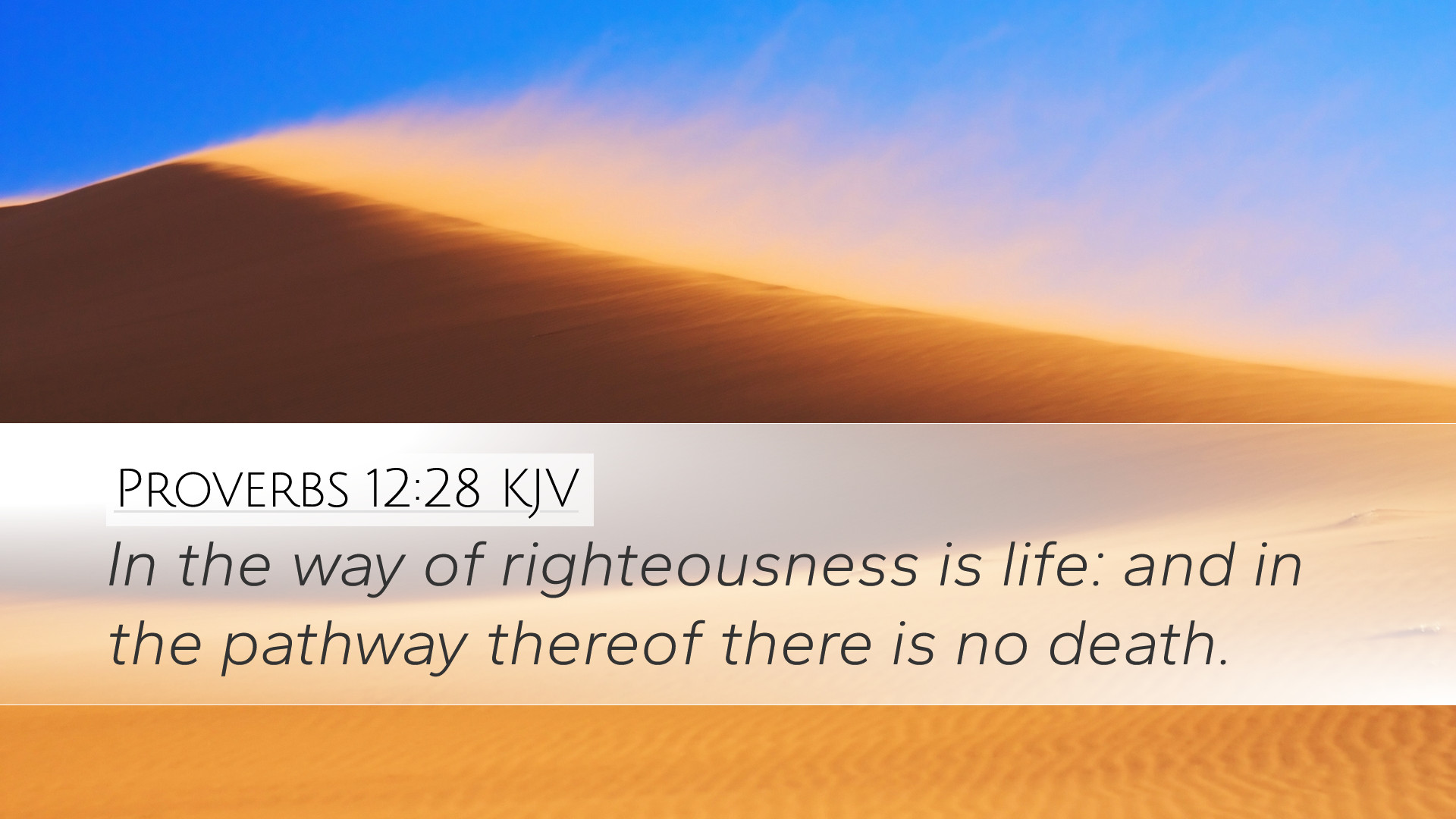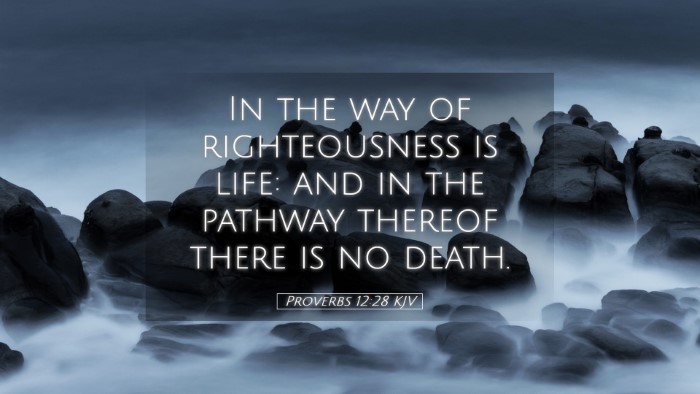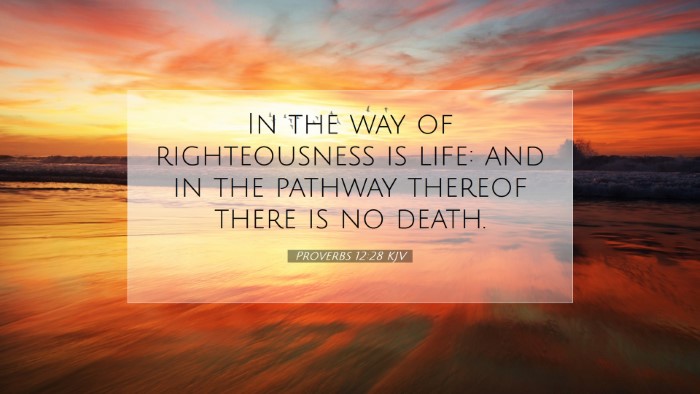Commentary on Proverbs 12:28
Proverbs 12:28 states, "In the way of righteousness is life; and in the pathway thereof there is no death." This verse encapsulates profound truths about the nature of righteousness and its consequences. Many renowned biblical scholars have reflected upon this passage, providing insights that are valuable for pastors, theologians, and students of scripture.
Meaning of Righteousness
The term righteousness in this context refers to a state of moral integrity and adherence to God’s laws. Matthew Henry emphasizes that righteousness is not merely a philosophical concept but a practical way of living that aligns with divine standards. It signifies living according to the will of God, which ultimately leads to a life that flourishes under His guidance.
The Way of Righteousness
When the verse speaks of the "way of righteousness," it implies a path or journey that an individual takes. Albert Barnes further explains that this "way" is characterized by choices and actions that reflect godly wisdom. The believer is called to walk in this way, suggesting a continual process of growth and righteousness.
Life as a Promise
The mention of life in connection with the way of righteousness conveys the assurance of vitality and purpose. Adam Clarke notes that this life encompasses not just earthly existence but also eternal life, which is a recurring theme throughout the Scriptures. Those who choose the path of righteousness experience a fullness of life that transcends mere physical existence.
The Pathway with No Death
In the latter part of the verse, "in the pathway thereof there is no death," suggests a protective quality inherent in following righteousness. Matthew Henry interprets this to mean that though believers may encounter physical death, they are safeguarded from spiritual death, which is the eternal separation from God. This concept aligns with the New Testament understanding of eternal life through Jesus Christ, a promise of salvation for those who are righteous.
Contrast with Wickedness
This verse implicitly contrasts the way of righteousness with the ways of the wicked, whose path leads to destruction. Proverbs as a whole frequently contrasts these two paths, urging readers to choose righteousness for a fruitful life. Albert Barnes suggests that recognizing the outcome of one's choices is crucial for spiritual discernment.
Theological Implications
The theological implications of Proverbs 12:28 warrant deep reflection. It speaks to the heart of God’s covenantal relationship with humanity, where obedience to His commands is rewarded with life. Pastors and teachers can draw from this to elucidate the importance of living a life that mirrors Christ’s righteousness, thereby sowing seeds of hope and encouragement among congregants.
Practical Application
- Emphasize Righteous Living: Encourage congregants to pursue righteousness in everyday life, showing the practical aspects of living according to God’s word.
- Teaching on Choices: Highlight the significance of daily choices and their long-term impacts on spiritual well-being.
- Celebrate the Assurance of Life: Remind believers of the assurance of eternal life through faith in Jesus as the ultimate expression of righteousness.
- Contrast with Worldly Ways: Engage in discussions about the stark differences between worldly pursuits and the pathway of righteousness.
Conclusion
In conclusion, Proverbs 12:28 serves as a beacon of hope and guidance. It encapsulates the essence of a life guided by righteousness and its inevitable reward. Scholars like Matthew Henry, Albert Barnes, and Adam Clarke collectively illuminate the depth of this verse, showing that a commitment to righteousness leads not only to a flourishing life but also to the assurance of eternal existence with God. As pastors, students, and theologians delve into the implications of this scripture, may it inspire a deeper commitment to the path of life, wholly devoted to the principles laid out by the Creator.


